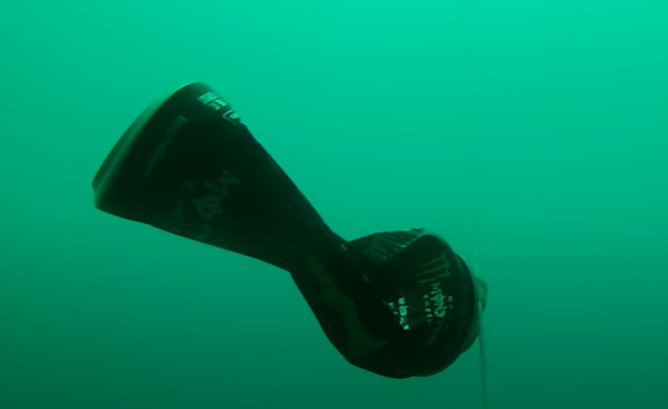Why the World Is Captivated by the Titan Submersible Tragedy
Written on
Chapter 1: The Allure of a Catastrophe
Recently, I came across a comment on Facebook that read, “I don’t understand why everyone is so fixated on this submarine incident. People die doing reckless things all the time.” While this sentiment holds some truth, it does seem rather cold. However, it's not often that a single incident captures the world's attention so intensely. As someone who has been thoroughly engrossed in the unfolding events, I feel compelled to share my thoughts.
It all started on a Monday morning when my partner returned home and casually mentioned, “Did you hear about that submarine?” Before long, I found myself refreshing news websites, tuning into podcasts, and watching live streams. My local news station boasted over 50,000 viewers for a YouTube broadcast about the event—a remarkable figure for the Tampa Bay area.
For those who might be unaware, a luxury underwater tourism venture called OceanGate offers excursions to view the Titanic wreckage at a staggering price of $250,000 per ticket. Tragically, four explorers, including the CEO of the company, went missing on June 18th.
While I had some background knowledge of deep-sea experiences—having a scuba certification and some freediving experience—this was an entirely different level of risk.
A different comment I saw expressed frustration: “Why is everyone obsessed with this story while ignoring the Greek migrant crisis? Wealthy individuals always come out ahead.” Although I understand where this person is coming from, I don't subscribe to the “whataboutism” narrative. The migrant situation is indeed tragic and has received attention.
Yet, there is a kernel of truth in their observation. The extreme circumstances surrounding the Titan incident, along with the extravagant decision to spend a quarter of a million dollars to gaze at a rusty anchor, evoke a peculiar fascination. For those on board, this might have been about conspicuous consumption—a desire to be part of something exclusive.
The Titan submersible had previously taken numerous adventurers to the Titanic, highlighting an often-overlooked market for extreme tourism. Additionally, there is a slight element of schadenfreude in this story—a small pleasure derived from the misfortune of others.
This isn't to speak ill of those who lost their lives; I wouldn't wish such a fate on anyone. Part of the appeal of this narrative lies in its intimate nature—these individuals were trapped in a confined space in an incredibly hostile environment.
People are also intrigued by hypothetical survival scenarios. The more extreme and rare they are, the more captivating they become. We ponder the possibilities and how we might respond emotionally in such dire situations, tapping into our innate capacity for empathy.
It's important to note that an incident of this nature has never occurred in modern history, especially not at such depths and near the Titanic, an iconic shipwreck.
As the situation unfolded, hope flickered when Canadian authorities reported sounds resembling banging every 30 minutes—suggesting a potential plea for help. The U.S. Coast Guard later indicated that these noises were likely not from the missing submariners. Nonetheless, they were a glimmer of hope, leading us to think, “Maybe there's a chance.”
In reality, that hope was illusory.
Social media further muddied the waters with wild speculations and conspiracy theories. Yet, as often happens, the truth was more straightforward than anticipated: the Titan had imploded, and it did so with devastating force.
James Cameron, a renowned deep-sea explorer who has visited the Titanic multiple times, stated he suspected an implosion within hours, due to the loss of communication and tracking signals. He had long criticized the design flaws of the submersible.
We are drawn to disasters—not because we enjoy seeing lives lost, but because of the chaos that follows. Disaster movies exist for a reason.
The Positive Side
If there's a silver lining to this tragic event, it's that it showcased humanity's ability to unite in times of crisis, akin to the Thai cave rescue. Even in the most chaotic democracies, people can come together, recognizing their shared humanity.
We all wanted the men aboard the Titan to survive, which gives me hope. While there were jokes about Darwin Awards being handed out, most people genuinely wished for their safety.
And let’s be clear: there were far worse scenarios. The victims could have been trapped in that frigid sub, awaiting a slow suffocation in complete darkness.
If there's any consolation to this grim tale, it’s that their passing was likely instantaneous.
During my own diving experiences, I felt the crushing pressure of the water almost immediately upon descent. The pressure is tangible, especially in your ears, as you try to equalize it.
It's crucial to remember that water is incompressible. A cubic foot weighs approximately 62.41 lbs at any depth, exerting immense pressure.
At depths of 2.5 miles, the pressure reaches around 6,000 lbs per square inch—more than most heavy vehicles. William J. Broad, a science correspondent, mentioned that at the Titanic's depth, the Titan was under the equivalent of the Empire State Building's weight pressing down on it.
For perspective, consider this energy drink can at 100 feet depth:

The implosion likely occurred at depths exceeding 11,000 feet, and it wasn't a gradual leak; it was a swift and violent event, difficult to comprehend. There was no prolonged suffering or frantic attempts to escape—just an instant death, occurring at much lower pressures.
YouTube is filled with demonstrations of atmospheric pressure causing large cans to collapse, often startling onlookers. The implosion is sudden, akin to a gunshot, not a slow crumpling.
We were all witnesses to the fate of five individuals caught in a disastrous science and tourism endeavor. How could we turn away?
The first video, "All good here: What really led to Titan's implosion?" delves into the factors surrounding this tragic event.
The second video, "Analyzing how the Titan submersible Imploded," offers a closer look at the circumstances leading to the implosion.